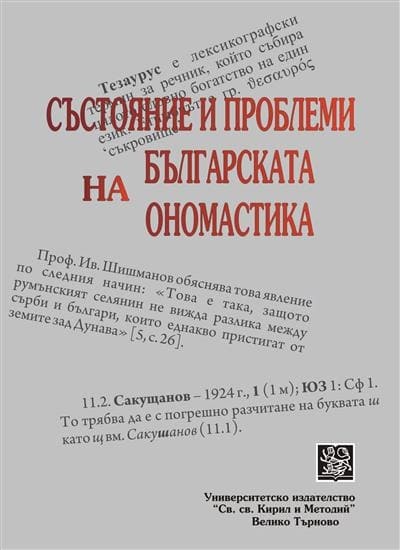
We kindly inform you that, as long as the subject affiliation of our 300.000+ articles is in progress, you might get unsufficient or no results on your third level or second level search. In this case, please broaden your search criteria.


The article starts with a review on what has been written so far about the denominations of the Pirin mountain - Orbel, Beride and Yudenitsa – considered to be older – and outlines some hypotheses about their origin. Then we present the interpretations of different authors of the meaning behind the name Pirin. Some consider it to be Slavic, and others – Thracian. Most recently, there’s another view that the name has Ancient – Bulgarian (Bulgarian, Prehistoric – Bulgarian, Proto – Bulgarian) origins. The analysis of the different hypotheses results in two leading interpretations. The first one is the Slavic, supported by arguments from Ivan Duridanov. And the second is the Ancient – Bulgarian, formulated by Petar Goliiski, on the basis of a promulgated document by Kazimir Popkonstantinov from the 9th century, where the name Pirin has been attested. Based on what has already been written and the thorough analysis of the geographical (territorial) display of all registered toponyms so far, linked to the name Pirin (Pìrin (Pirìn), Pirìn kuzù, Pìrina, Pirin, Pirìnski vàlog, Pirìnsko prisòe, Pirìnski livàdi and Perin), an interesting conclusion could be drawn. Almost all of the above mentioned denominations are registered within the confines of Medieval and present day Bulgaria, except for two: Perin in Novgorod, Ukraine and Pirin in Sarajevo! The Ukrainian Novgorod is situated at the middle stream of the river Dnieper – a region that was the heart of Old Great Bulgaria – the domain of Khan Kubrat. It is harder, however, to provide evidence of Bulgarian presence in Sarajevo. The inclusion of Bosnia and Herzegovina within the confines of the Bulgarian country during the time of the kings Simeon I the Great and Samuil does not prove by any means that Bulgarians used to live there. However, Petar Goliiski quotes a message from the Armenian Simeon Lehaci (from the period of 1608 – 1620), connected with the presence of a Bul garian ethnical element in Sarajevo, which says: “It took us five days from here to get to Bosnia Saraj [Sarajevo], a big city, built on a high mountain… The inhabitants of this country [Bosnia] are big, tall, strong and muscular men. They have absolutely no knowledge of Turkish language and speak only Bulgarian… There are Bulgarian monasteries all around Bosnia… Everyone in Bosnia speaks Bulgarian”. This explains the Bulgarian relation to the presence of the toponym Pirin in Sarajevo. The toponyms of Pirin are widespread in lands, which had been inhabited by the Old Bulgarians in the past, therefore there’s a reason to believe that the oronym Pirin has a more plausible Ancient – Bulgarian, rather than Slavic origin.
More...
The toponyms “Marko’s knee”, “Marko’s footstep”/“Marko’s footsteps” contain the myth of the sacred marriage of the Holy mountain/rock = The Great Goddess Mother Earth and her son Marko, born from the rock. This conclusion comes from the phallic symbolism of men’s legs – the “knee” and the “footsteps” of the godlike adolescent-man Marko
More...
The text discusses the theme Onomastics and/or Naming in the context of new technologies during the 21st century: information and communication, Marketing and Brand technologies, and sets the question if it is appropriate to separate the Naming direction from the traditional Onomastics, in which case the name is constructed and it establishes a language world of constructed names according to the world of the constructed forms.
More...
The paper examines the topic of the role and place of Dimitar Ralchov in the history of Bulgarian onomastics. Prosopographic information about this remarkable Bulgarain is provided. He was one of the first statesmen of Bulgaria after the Liberation that very conscientiously and professionally implemented the administrtive replacement of the Turkish settlement names with Bulgarian ones in Dobrudzha. To achieve this objective D. Ralchov appointed a Committee of linguists, lawyers, historians, geographers and others. Their activities were in compliance with the old names, geography, historical events, specifics, prominent Bulgarians, etc. “The beginning” in Bulgarian onomastic science certainly needs elucidation of the work of such valuable “importer” in the Bulgarian onomastic fund as Dimitar Ralchov.
More...


In article features of a history Ukrainian names of firms are traced, traditions names of Dnepro’s firms are investigated. Are analyzed names of firms different spheres and directions (trading and on granting services), various to destination and the consumer (legal, medical, building, grocery etc., nurseries, female, man’s). The characteristic both positive, and to negative examples is given. Materials of article can interest as scientific, and everyone who is interested in problems of language.
More...
The article deals with the functioning of urbanonyms in pharmaceuticals advertising texts. The purpose of the article is the defining the specifics of the urbanonyms functioning in pharmaceuticals advertising texts. It is presented a brief description of urbanonyms in different historical periods. It is proved that urbanonyms serve as the additional source of historical documents, they promote disclosure of advertising text’s ideas. It is rather nominally created urbanonyms classification in pharmaceuticals advertising texts, according to which the following urbanonyms groups are presented: 1) outstanding persons in Odessa or the country; 2) the names of other cities; 3) the names of nations; 4) famous scientists, 5) writers. It is eliminated nominative, information and advertising, cultural and symbolic functions of urbanonyms in pharmaceuticals advertising texts.
More...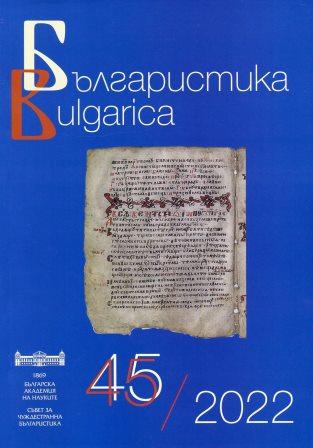




In the article the comparative analyses of the functioning of onyms in the works devoted to image interpretation of Don Juan. The study of language and stylistic tools in comparative aspect proves cross intertextuality is conceptual images and stories, their universal significance. Revealed common and different features onym intertextual paradigm of dramatic works Zh.B.Molyer, A. S. Pushkin, Lesia Ukrainka. The article deals with functional and stylistic features of the role of onyms – components onym paradigm in the works with identical story, written at different times. Onym space all studied the works caused theme, idea, plot, ideological orientation dram; it is a means of character, styling narrative, artistic way to create chronotope and disclosure of the author’s conception. The main character in all studied the works is unchanged4 number of other characters range varies according anthroponymy amount used. Other components onym paradigm – toponyms with function like stage directions (Lesya Ukrainka) and in the language of the actors (A.S.Pushkin, Zh.B.Molyer, Lesia Ukrainka). The toponyms perform its main task – creating art works and the space of the certain national colors. The toponymic fields form a striking association parallel and contrasting opposition; they are rich expressive. Most branched is right toponimic in the drama Lesi Ukrainki, which is actively involved in the creation of equal artistry. The investigation lead to the conclusion about the similarity onym paradigm dramatic works, which are based on the story of Don Juan. Individual differences in onym dramas structure caused by the deployment of the scene of action, the author’s conception of the work. The analyses confirms purposeful hard work of masters of artistic expression of linguistic and stylistic parameters of their work, onym coordination of all components in the context of artistic microcosm according to its idea.
More...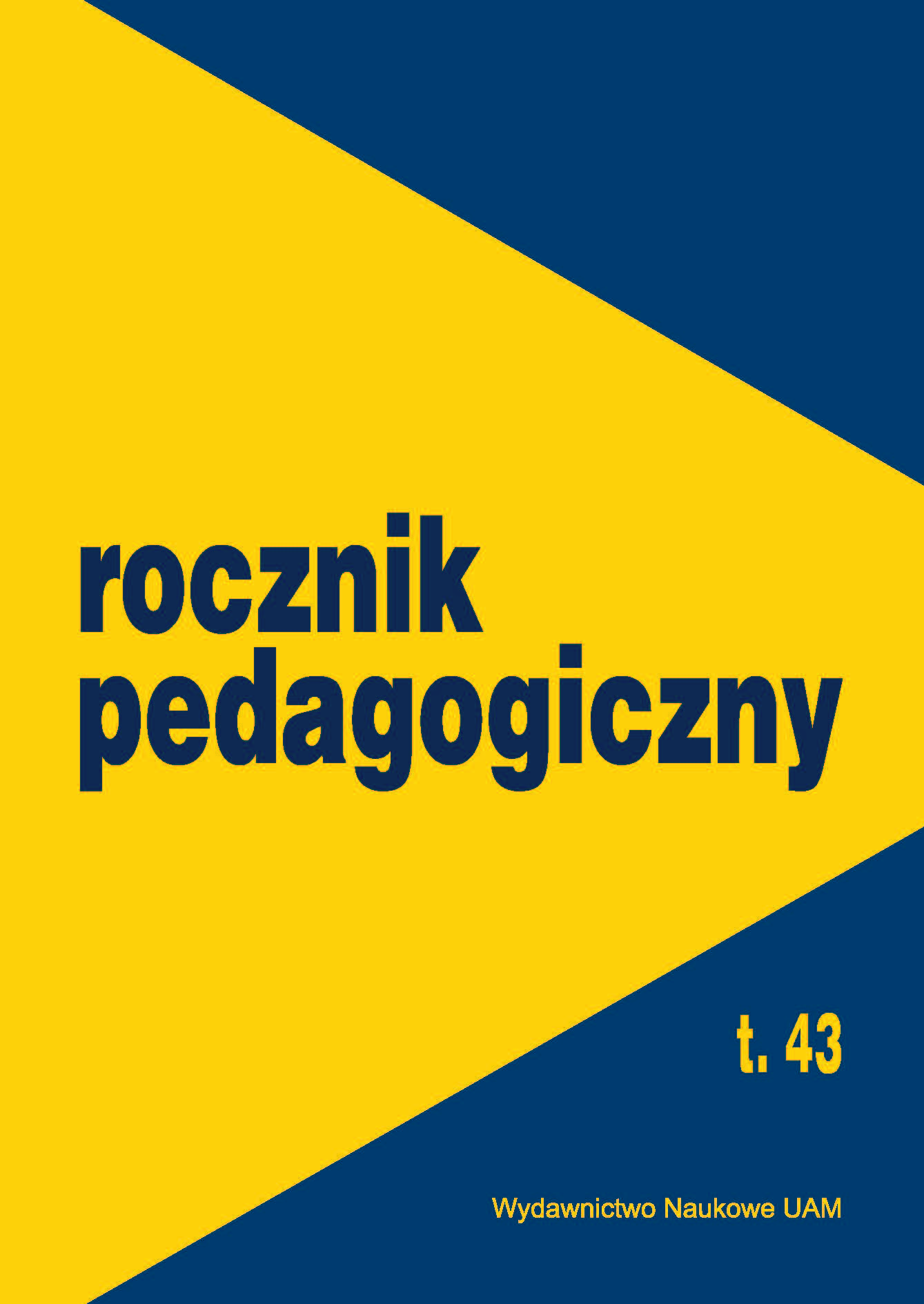
The concept of the language as an instrument for children, that leads to their mutual understand- ing in the classes 1–3, depends on the comprehensive educators approach to the relations between linguistics and the philosophy of language, developmental psychology, sociology of culture, and the history of the Polish society. The child’s undertaking of the school education imposes on the teacher the obligation to accompany it not only in mastering the elementary knowledge of the native language’s grammar system, but also in creating situations that overcome students fear of making difficult decisions when solving interesting tasks. When using the functions of the language: fatic, communicative, informational, expressive or meta-linguistic, pupils go through the several stages from the incorrect speech to correct speech, and they master the elementary structure of the reading texts intended for the little recipients. The described process would be strengthened depending on the pupil’s social background, and conditioned culturally and environmentally. This in turn affects the perception of the poetic language function and aesthetic attitude towards art.
More...
Текстот користи животни приказни и архивски материјали за да ги истражи односите меѓу македонските и грчките деца бегалци што го избегнаа насилството од грчката граѓанска војна и израснаа во детски домови во Источна Европа. Поконкретно, ја испитува доминантната улога на грчката комунистичка партија врз животот на бегалците, организацијата на образованието на македонски јазик и тензиите создадени од кампањата против Тито што ја започнаа земјите од Информбирото. Во текстот се дискутира и за краткотрајното основање на автономна македонска организација во Полска за време на раните 1960-ти. И, на крајот, текстот ги анализира усните сеќавања на грчките и македонските деца бегалци за нивните меѓусебни, главно, хармонични односи. Трудот тврди дека обновувањето на ваквите спомени во светлината на современите конфликти меѓу двете земји може да биде важен извор за иднината.
More...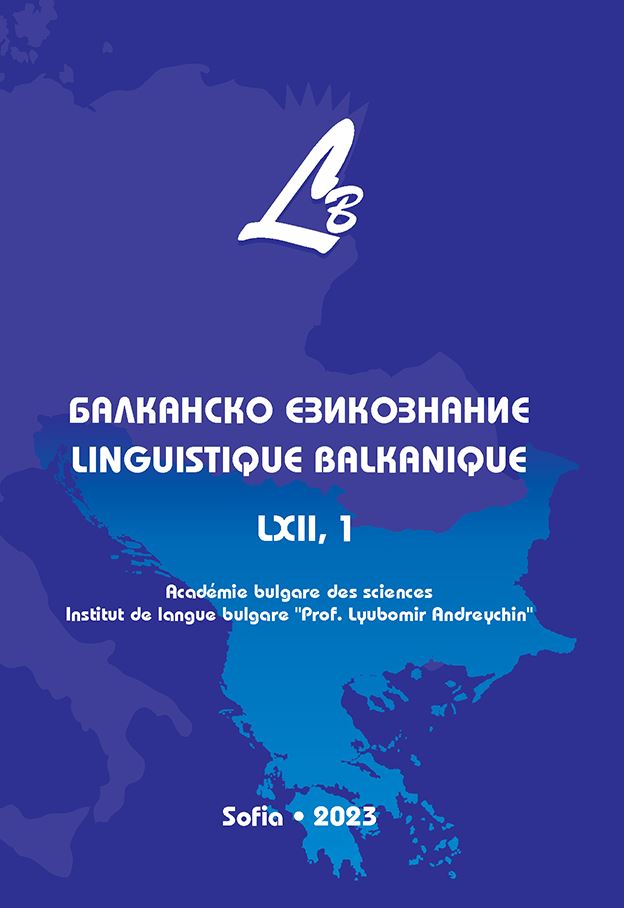
The article examines the origin of words denoting disgust in the Indo-European languages. The task of this study is to find regular and predictable semantic changes which are reproduced and which intersect in the Indo-European languages. The semantic changes are analyzed on the basis of the relation ‘A’ > ‘disgust’, A being the source meaning. The etymological analysis of the words designating disgust reveals that the semantic evolution is mostly due to metonymic developments. Four main groups of semantic development have been established: 1. mixing with other emotions (15 roots); 2. physical sensations related to disgust, such as being satiated or being sick (4 roots); 3. physical actions: reactions to disgust that allow us to avoid or expel the object of disgust like turning away, pushing, fighting against, fleeing, vomiting or spitting (14 roots); 4. triggers of disgust, such as bitter taste, dirt, defecation, bad smell (8 roots). It is interesting to note that the results obtained by the etymological analysis correspond very precisely to the psychological description of disgust. This is the second part of a more extensive study whose first part has already been published in this journal.
More...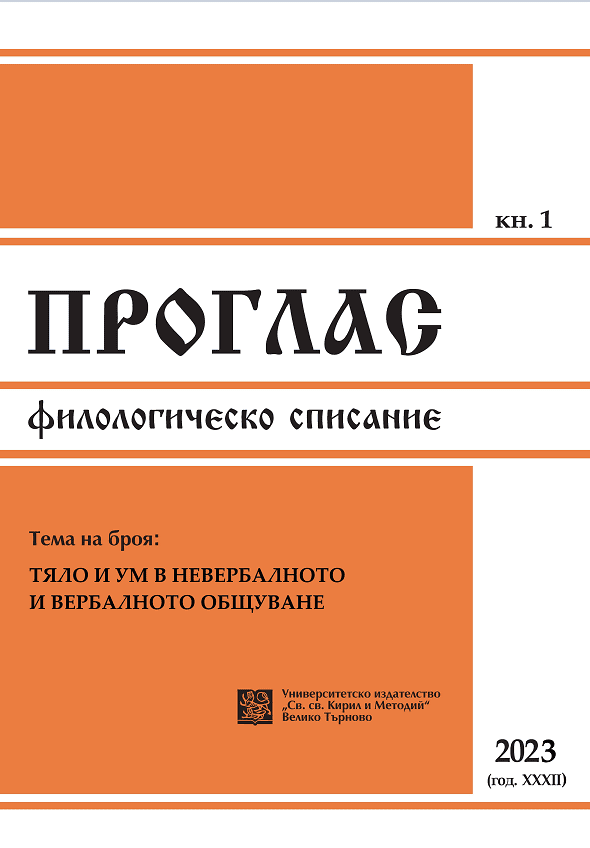
This paper examines some Bulgarian phrases, idioms, proverbs, and sayings related to being cunning. The linguocultural analysis points to a close relationship between intellect and cunning in the Bulgarian linguistic picture of the world. The research also shows that the Bulgarian phrases, idioms, proverbs, and sayings related to being cunning have mainly positive connotations in the Bulgarian mentality.
More...
The joke or the anecdote is considered as a product of wit, a source of laughter, or a means by which the Bulgarian manages to overcome the negative consequences of the financial crisis. The authors dealing with the study of jokes as a linguistic and cultural phenomenon emphasize that telling and composing jokes is activated when there are problems in society that accumulate serious tension, since the jokes are considered as an outlet or a form of reaction against social phenomena and personalities. In this paper is made an attempt to clarify the mechanisms and the linguistic means that produce the comic effect in the jokes.
More...
Apart from residing in renarratives proper predominantly, renarration as a semantic and grammatical value can be found in Bulgarian present perfect verb forms too. When a Bulgarian native speaker faces a choice between a present perfect and a preterit renarrative, the former is often replaceable by a renarrative. However, there are cases in which replaceability of perfects with renarratives is impossible. The reasons for this are analyzed and explained; a larger scope of the speaker ghosting phenomenon is revealed. The study facilitates some significant generalizations: (i) grammatical entities (categories, grammemes) arise due to structural dependences; (ii) as the perfect has no semantic content of its own and exercises structural functions, Slavic languages that appear not to feature perfects can actually be said to have perfects – under the guise of preterits.
More...